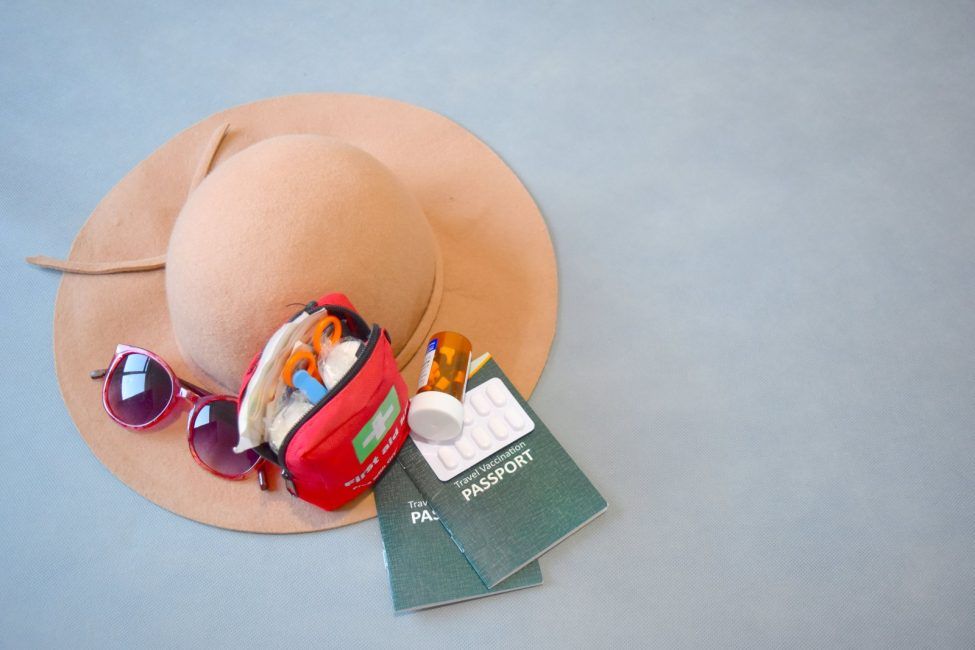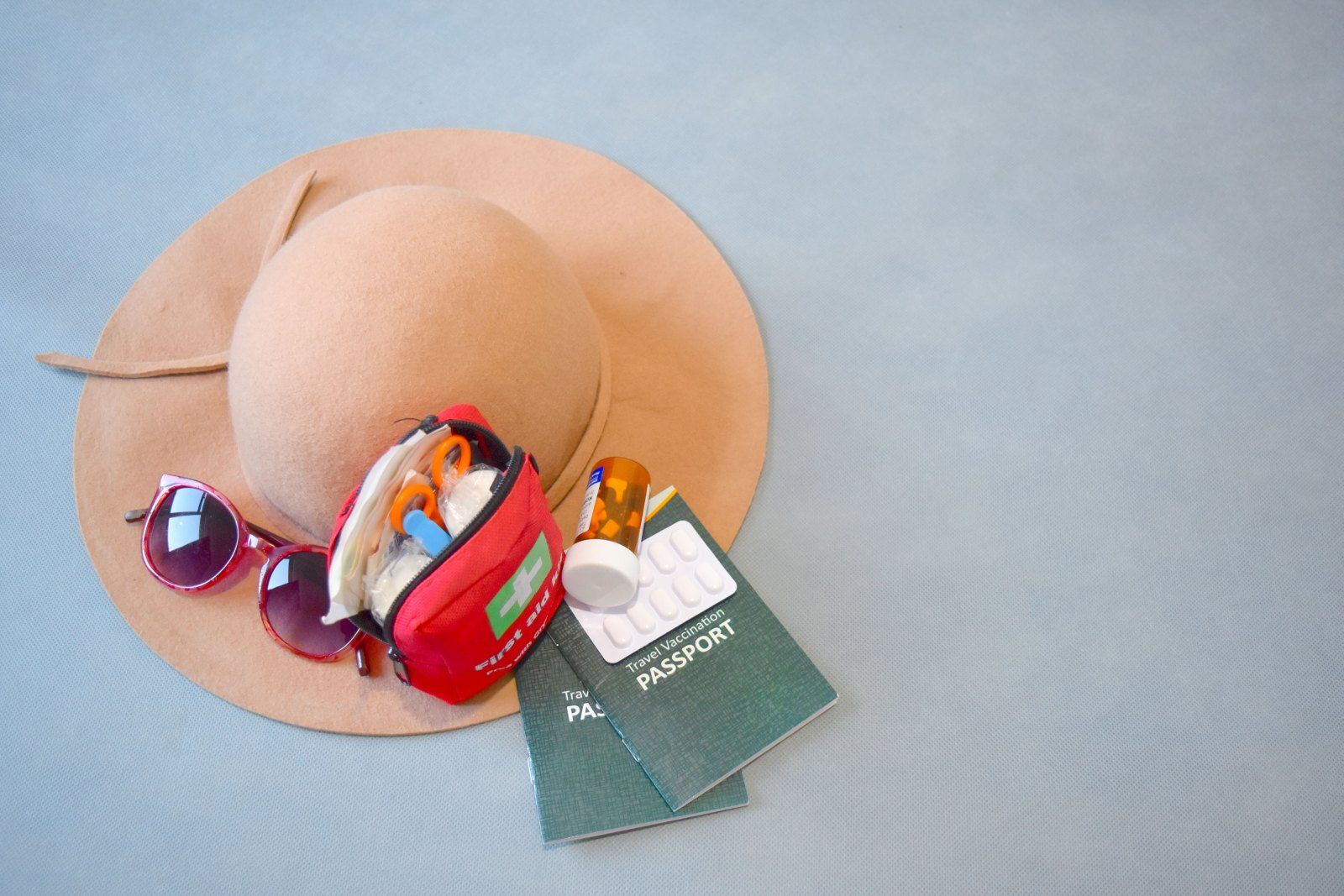Travel First Aid Kit and Medication for Tonga
Travelling to a tropical country like Tonga does come with a higher risk of health issues, most commonly, sunburn, heatstroke and mosquito bites. Plus, with most travellers in Tonga being pretty active during their visit, accidents and injuries can happen. With all of this in mind, it’s a good idea to be prepared for minor injuries and illnesses with your own travel first aid kit for Tonga. We go through the essential medication to pack for Tonga in the checklist below.
Before we begin, make sure you pack the other essentials that we list in the 20 Essentials You Need to Pack for Tonga.
10 Essential Health Tips for Travelling in Tonga
- Boiling water before drinking is advised. Alternatively, use a Lifestraw Bottle or one of the other methods discussed in Is the Water Safe to Drink in Tonga?
- Speaking of water, be sure to drink plenty – at least 2 litres/68 oz every two to three hours to stay hydrated
- If you’re feeling unwell, be proactive and see a local doctor immediately
- Taking a couple of paracetamol and a nasal decongestion spray 30 minutes before a flight can help with flu-like symptoms and ear pain
- Take sensible precautions. For example, cover yourself and/or use insect repellent to avoid mosquito bites and wear sunscreen
- Carry medicines in your hand luggage in case your check-in luggage is lost
- Wear a medical alert bracelet if you have allergies or a chronic illness
- If you are treated in Tonga, obtain a full written medical report for your travel insurer
- If travelling with an infant, pack your usual brand of baby formula, as a change in diet may lead to bowel complications
- If you become ill after returning home, tell your doctor that you have visited Tonga.
Our final tip is to check out our Tonga Safety Tips for much more advice.
Tonga Travel First Aid Checklist
Although you can get first aid kits at pretty much any pharmacy, they are generic and often only include enough to deal with a couple of cuts. We like to create our own first aid kit that has been adapted to our destination, in this case, Tonga, as well as to our personal needs.
Our example Tonga first aid kit includes a few prescribed medications, so make sure to book an appointment with your GP and get these prescriptions sorted.
What to Pack in Your First Aid Kit for Tonga
- Travel passport for a record of your vaccinations
- Band-aids/plasters for cuts
- Disinfectant wipes for cuts
- Gauzes for cuts
- Gloves for cuts
- Butterfly closures for small wounds
- Antisceptic cream/spray for infected cuts (spray is better for hot climates)
- Tweezers to remove shards, leeches and bugs
- Thermometer to monitor temperature
- Elastic wraps for twisted ankles
- Flight socks to prevent swollen ankles
- Paracetamol/ibuprofen for headaches and fevers
- Antihistamine pills or cream for mosquito bites
- Oral rehydration sachets (medical electrolytes) for dehydration from the sun or gastro bugs
- Baby electrolytes for dehydration in infants
- Antacids for neutralising stomach acid
- Antidiarrhoeal pills such as loperamide for diarrhoea
- Nasal drops for congestion
- Hydrocortisone cream for allergic rashes
- Aloe vera soothing cream for sunburn
- Hand sanitiser when clean water is not available
- Multivitamins for a vitamin boost if dietary intake is poor
- Antibiotics if recommended by your GP
- A copy of the emergency numbers in Tonga
Emergency Services: 911
Tonga Fire Service: 999
Tonga Police: 922.
Other Medication and Health Products to Pack for Tonga
While not necessarily needed in your first aid kit for Tonga, these other medications and health products are handy to have with you in Tonga.
Sunscreen
With UV levels of 5-12+ in Tonga, it’s crucial that you protect yourself and your loved ones from sun exposure in order to avoid sunburn or heatstroke. For Tonga, it’s recommended to use at least SPF 30+ sunscreen, which should be applied every three hours or soon after going in the water. Be sure to choose a sunscreen that’s safe for marine life and bring this from home, as reef-safe sunscreen is hard to come by in Tonga. Check out examples of safe sunscreen to use in The Best Sunscreens for Tonga + Sun Protection Tips.
Insect Repellent
It’s important to avoid mosquito bites in Tonga, as mosquito-related diseases like dengue fever and chikungunya do occur. Check out our recommended mosquito repellents in 10 Best Natural Mosquito Repellents for Tonga. Plus, get more advice for avoiding bites in the 10 Ways to Avoid Mosquito Bites in Tonga.
Seasickness Pills
With ferries and many of Tonga’s top activities being on boats, it’s recommended to pack some seasickness pills. Take one an hour before getting on a boat and take a pack with you on the boat should you start to feel queasy. Many of the boat tours and boat transfers in Tonga are on small boats, where motion sickness is often increased.
Iodine (Water-Purifying) Tablets
As a precaution for drinking water from a tap or any other potentially unsafe sauce, iodine tablets dissolved in water helps remove some bacteria and viruses from the water. This is not 100% effective though, so when possible boil water for at least 10 minutes before drinking it. Get more tips for finding safe drinking water in our guide, Can You Drink the Water in Tonga?
Glasses/Contact Lenses
It’s always a good idea to have a spare pair of glasses or spare sets of contact lenses, in case you lose or damage your glasses and/or contact lenses.
Prescription Medication
Finally, remember your prescription medication. It’s a good idea to bring medication in the original packaging with the label for whom it is prescribed. As an extra precaution, get your GP/doctor to sign and date a letter describing your medical conditions and medications, including their generic names, should you need more prescribed medication while in Tonga (but we recommend taking enough for your whole trip plus a few extras).
More About Medication to Pack in Your First Aid Kit for Tonga
That’s it for the medication to pack in your first aid kit for Tonga.
- What to Pack for Tonga: Full Tonga Packing List
- Do You Need Vaccines to Travel to Tonga?
- 10 Best (& Reef-Safe) Sunscreens for Tonga
Finally, head over to The Complete Packing List for Tonga or get even more advice in our 31 Tips for Travelling in Tonga.
Author
Robin (Lopini) C.
This article was reviewed and published by Robin, the co-founder of Tonga Pocket Guide. He has lived, worked and travelled across 16 different countries before settling in the South Pacific, so he knows a thing or two about planning the perfect trip in this corner of the world. Robin works and consults regularly with the Ministry of Tourism of Tonga. Robin is also the co-founder of several other South Pacific travel guides and is a regular host of webinars with the South Pacific Tourism Organisation.

